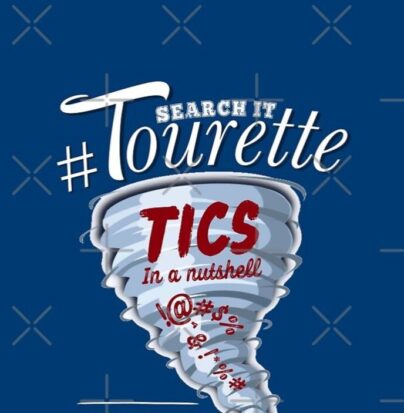Understanding Tics: Causes, Duration, and Treatments
Tics are a common neurological disorder characterized by sudden, repetitive movements or vocalizations. They can be a source of distress and disruption for those affected, as well as their families and caregivers. In this article, we will delve into the causes, duration, and treatments of tics, providing a comprehensive understanding of this condition.
Causes of Tics
Tics are thought to be caused by a combination of genetic and environmental factors. Research suggests that there is a strong genetic component to tic disorders, with studies indicating that up to 90% of individuals with Tourette’s syndrome (a type of tic disorder) have a family history of the condition. Environmental factors, such as exposure to toxins or stress, may also contribute to the development of tics.
Duration of Tics
The duration of tics can vary widely, ranging from brief episodes to persistent and chronic symptoms. In some cases, tics may be present only during times of stress or anxiety, while in others, they may be a constant feature of an individual’s daily life.
Treatments for Tics
There are several treatments available for tics, including:
- Behavioral therapy: Techniques such as habit reversal training and exposure therapy can help individuals manage their tics and reduce their frequency and severity.
- Medications: Antipsychotic medications, such as haloperidol and pimozide, are commonly used to treat tics. These medications can help reduce the frequency and severity of tics but may also have side effects.
- Deep brain stimulation: This surgical procedure involves implanting electrodes in the brain to deliver electrical impulses that can help reduce tic frequency and severity.
- Botulinum toxin injections: Injections of botulinum toxin, such as Botox, can help reduce the frequency and severity of motor tics.
Alternative Therapies
In addition to traditional treatments, there are several alternative therapies that have been found to be effective in managing tics. These include:
- Mindfulness-based therapies: Mindfulness-based therapies, such as mindfulness-based stress reduction (MBSR), have been shown to be effective in reducing tic frequency and severity.
- Cognitive-behavioral therapy: Cognitive-behavioral therapy (CBT) can help individuals with tics manage their symptoms and improve their overall well-being.
- Yoga: Yoga has been found to be effective in reducing tic frequency and severity in some individuals.
Conclusion
Tics are a complex and multifaceted condition that can have a significant impact on an individual’s daily life. Understanding the causes, duration, and treatments of tics is essential for developing effective management strategies and improving overall well-being. While there is no cure for tics, there are several treatment options available that can help reduce symptoms and improve quality of life.
References:
Tourette Syndrome and Other Tic Disorders – StatPearls – NCBI Bookshelf (nih.gov)
Tourette Syndrome | National Institute of Neurological Disorders and Stroke (nih.gov)
Tic Disorders (Motor Tics) and Twitches (webmd.com)
Websites:
Britmed Healthcare: https://britmedhealthcare.co.uk/
Nightingale Hospital: https://www.nightingalehospital.co.uk/
Top Doctors: https://www.topdoctors.co.uk/doctor/ahmed-el-missiry
You can also book, Contact us on WhatsApp 08009708017




